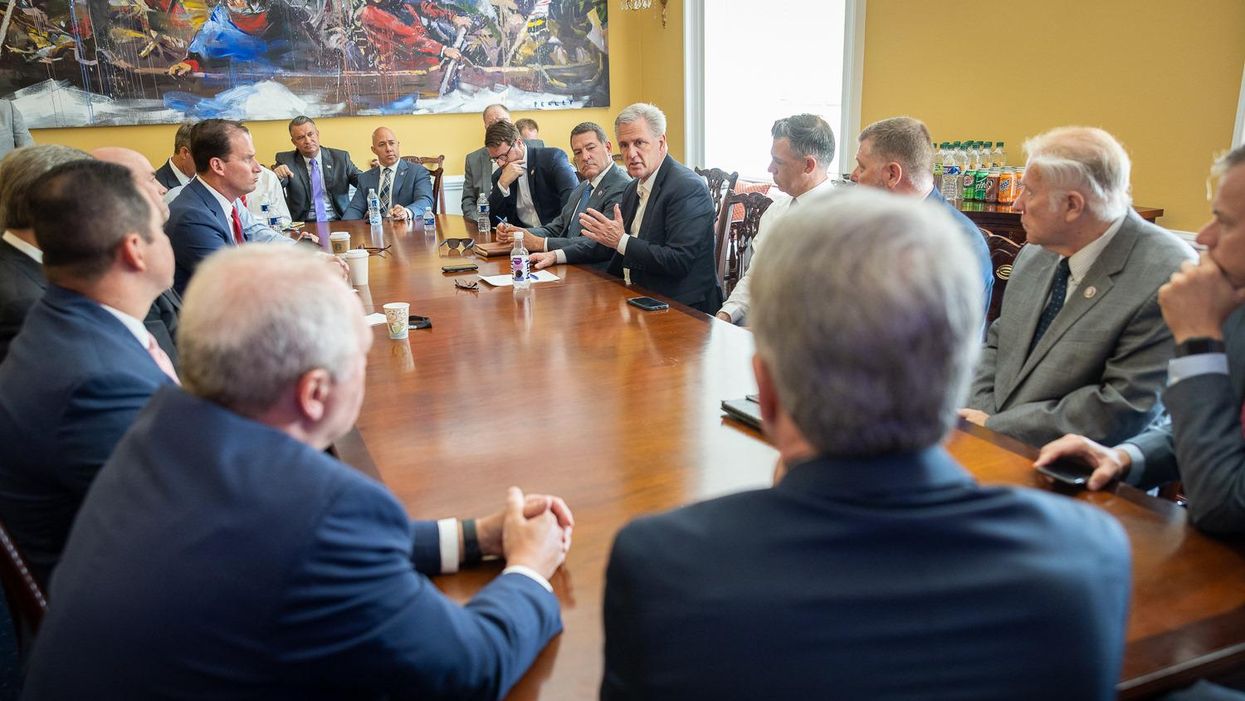Leaving Afghanistan Shows Wisdom, Not Weakness
The suicide bombing that killed 13 U.S. service members and at least 169 Afghans was an atrocity that evoked horror in Americans of every political persuasion. But among those who want to continue the war, the loss was taken as proof that the U.S. should have persisted in a mission that had previously claimed the lives of more than 2,400 Americans.
Had we been willing to go on spilling American blood to stay in Afghanistan, we would not have had to spill blood leaving it. The logic is peculiar.
But the hawks always find a way to justify endless war. They can't very well pretend that we could win in Afghanistan, now or ever. So they find boundless reasons to criticize the manner of our withdrawal, which was bound to be a messy, dangerous process.
They also resort to hollow cliches. Former Secretary of State Mike Pompeo accused the administration of "weakness." Sen. Ben Sasse (R-NE), asserted that "China and Russia will look to capitalize on Biden's weakness." Council on Foreign Relations President Richard Haass said the outcome "will reinforce questions about U.S. reliability."
Some of our European allies joined the chorus. A Conservative parliamentary leader in Britain said the withdrawal is "the biggest foreign policy disaster since Suez" — as though the wars in Afghanistan and Iraq were not gargantuan catastrophes.
Carping about alleged displays of weakness and loss of credibility is the familiar fallback of those trying to sustain a pointless military undertaking. They insist that ending it will have harmful effects on how others perceive us — a claim so vaporous it is impossible to disprove.
Their logic is that if we do something stupid, we have to keep doing it no matter what, because, you know, only weak people repent of their stupidity.
But if committing 20 years — as well as nearly 25,000 American casualties and more than $2 trillion — didn't persuade other governments of our resolve and staying power, it's hard to believe that Year 21 would be a game-changer. Foreigners might instead marvel at our willingness to lavish so much for so long on a mission that did little or nothing to enhance our security. They could deduce that when genuine U.S. interests are at stake, the sky is the limit on what we'd be willing to do.
Biden has shown a dedication to strengthening our alliances that his predecessor did not. President Donald Trump showed much fonder feelings for Russian President Vladimir Putin than for German Chancellor Angela Merkel or French President Emmanuel Macron.
Trump, in fact, bitterly resented our support of NATO. He even raised the possibility of refusing to honor our obligation, under Article 5 of the alliance treaty, to come to the defense of any member of the alliance who was attacked. Privately, he repeatedly expressed his desire to pull out of NATO.
Biden, by contrast, proudly wore a NATO lapel pin to a summit with European leaders in Brussels and declared: "Article 5 we take as a sacred obligation. I want NATO to know America is there." His principal difference with Merkel and Macron at that meeting lay in his desire to take a tougher line against China.
History offers additional evidence that ending a foolish, costly war will not degrade our international standing. Hawkish types said our 1973 withdrawal from Vietnam would speed the march of communism throughout the world. But it somehow failed to prevent the collapse of the Soviet Union, the liberation of Eastern Europe, or the capitalist transformation of China.
Our adversaries have good reason not to test the proposition that the Biden administration is weak. Our military spending, after all, amounts to more than that of the next 11 countries combined. Our Navy has a dominant worldwide reach that no other country can come remotely close to matching.
Our ground forces have decades of combat experience that Russian and Chinese troops lack. Our peerless air power is a deterrent to adversaries from Tehran to Pyongyang.
Ending our involvement in Afghanistan doesn't weaken our posture against our adversaries. It strengthens it, by letting us direct our resources and attention to matters that directly implicate our national security. Biden, for better or worse, is not presiding over a retreat from our role in the world — merely a sensible reshaping of it.
Thursday's bombing was a disaster. But staying in Afghanistan would only have guaranteed more like it.
Follow Steve Chapman on Twitter @SteveChapman13 or at https://www.facebook.com/stevechapman13. To find out more about Steve Chapman and read features by other Creators Syndicate writers and cartoonists, visit the Creators Syndicate website at www.creators.com












